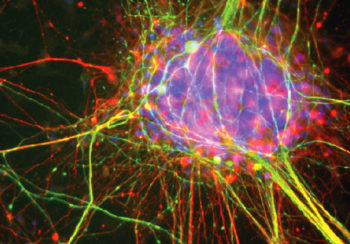Imagine your body as a well-run newsroom. Each day, the editor-in-chief—in this case, the pituitary gland—provides assignments, keeping everything running smoothly. One day, however, the editor’s role is usurped by a rogue reporter who declares breaking news nonstop, flooding the newsroom with bulletins and sending everyone into overdrive.
This is a bit like Cushing’s Disease. The rogue reporter is a tiny, usually benign tumor, the stress bulletins cortisol. The newsroom—your body—responds with metabolic fluctuations, burnt out muscles, emotional distress, and more. Over the long haul, Cushing’s Disease can cause lasting deterioration of the body: osteoporosis, muscle weakness, high blood pressure and heart disease, diabetes, memory and mood issues, fatigue, and more.
It’s a common disease and easier to detect in canines. In people, however, it is rare and difficult to diagnose. University of Georgia researchers are leveraging canine treatments to find new solutions to battle the condition in humans.
This collaboration between veterinary medicine and human health is just one example of how UGA uses a Precision One Health approach to find and tailor new medical treatments for people and animals.
Learn more in the video above.





